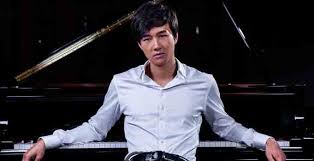Norma
Award-winning director Christopher Alden returns to ENO for its first ever production of Bellini’s indisputable Bel canto masterpieceNorma. Alden’s critically acclaimed production, first seen at Opera North in 2012 comes to London for the first time.
A close-knit community’s way of life is threatened by unstoppable change. The people want war. Their priestess Norma, secretly in love with one of the enemy Pollione, resists. But now he has a new love and in the face of his betrayal it seems Norma is prepared to make the ultimate sacrifice. Celebrated for its fine melodies Norma features one of opera’s most recognisable arias ‘Casta Diva’, made famous by sopranos Maria Callas and Dame Joan Sutherland.
Rising star soprano Marjorie Owens makes her UK, ENO and role debut in the demanding title role with British tenor Peter Auty debuting in the role of Pollione.
Norma opens on Wednesday 17 February 2016 at 7.30pm for 7 performances. Tickets are available at eno.org/020 7845 9300
Akhnaten
Watching Akhnaten is a thought-provoking, absorbing experience. The opera, which has not been seen in London for almost 30 years, explores the life and religious convictions of the Egyptian pharaoh.
Following the success of his ENO productions of Philip Glass’s Satyagraha and The Perfect American, Improbable Theatre Company’s Phelim McDermott returns to direct this hypnotically mesmerising work. Countertenor Anthony Roth Costanzo sings the challenging title role for the first time while conductor Karen Kamensek, a specialist in Glass’s music, makes her ENO debut.
This new production celebrates ENO’s close relationship with one of contemporary music’s leading composers.
Akhnaten opens on the 4th March for 7 performances. Tickets are available at eno.org / 020 7845 9300
Tristan and Isolde
An epic drama told on a grand scale, Tristan and Isolde will be an unforgettable highlight of ENO’s 2015/16 Season. From the opening bars of the famous prelude, Wagner’s powerful opera is one of the most significant pieces in the repertoire.
ENO’s first new production of Tristan and Isolde since 1996 is directed by ‘theatre’s most exciting young director’ (Daily Telegraph) Daniel Kramer, with designs from Anish Kapoor, one of the most influential sculptors of his generation. The exceptional cast is led by the outstanding Wagnerian Heldentenor Stuart Skelton as Tristan. He is joined by American dramatic soprano Heidi Melton and British Bass Matthew Rose. Former ENO Music Director Edward Gardner conducts.
Tristan and Isolde opens on the 9th June for 8 performances. Tickets are available at eno.org / 020 7845 9300

